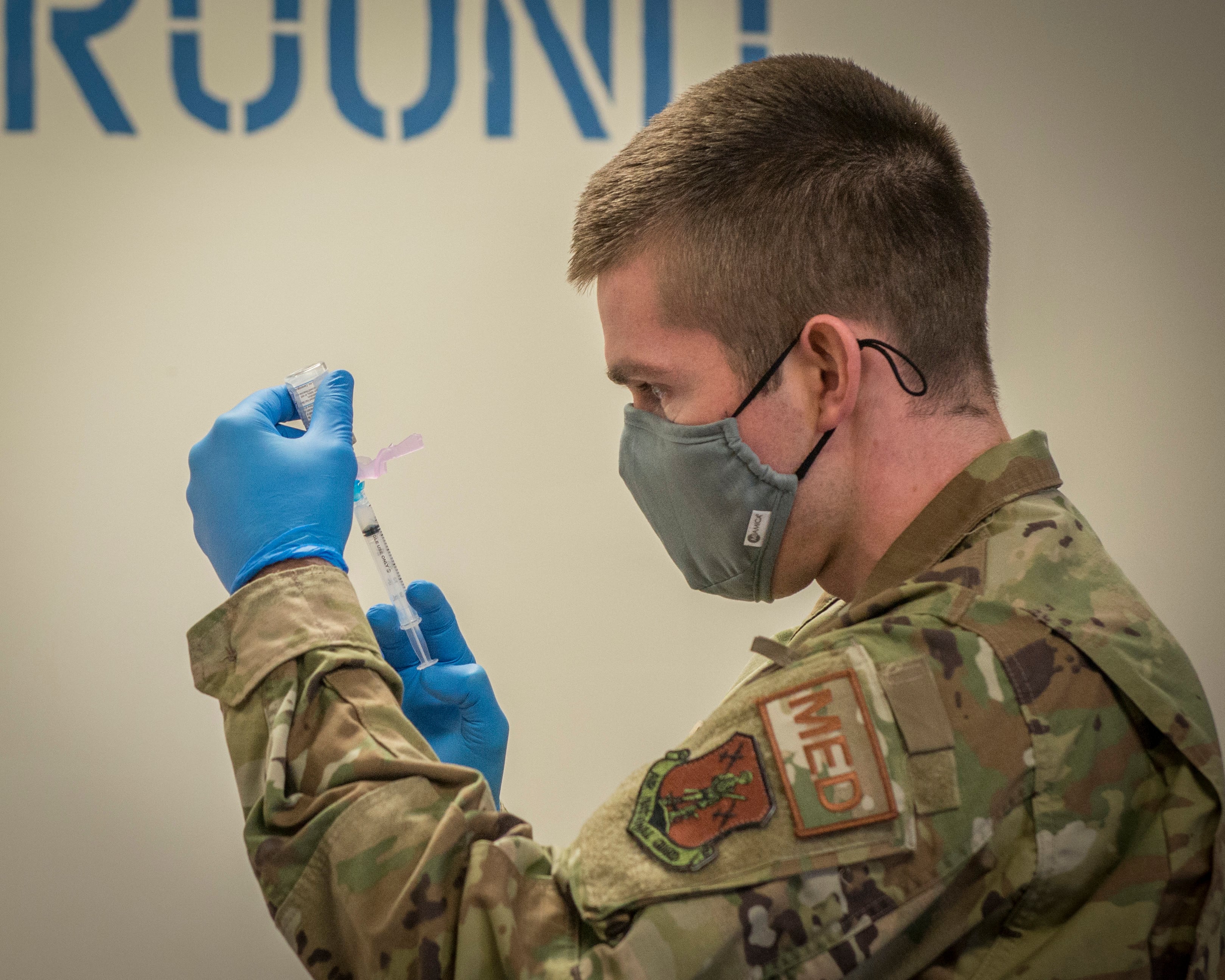Following Oklahoma’s lead, five additional states are pushing back against the Defense Department’s COVID-19 vaccine policy, putting their objections in a letter addressed to Defense Secretary Lloyd Austin on Tuesday.
The governors of Wyoming, Iowa, Alaska, Nebraska and Mississippi all signed onto the letter, asking Austin to lift his bar on unvaccinated Guard troops attending drill weekends or other mandatory training while in a federal, state-controlled status.
Dictating circumstances for training, levying punishments for declining vaccination and requiring separation from the National Guard are “beyond your constitutional and statutory authority,” the governors wrote.
“We have received the letter from the five Governors and will respond in due course,” Pentagon spokesman John Kirby said in a statement Wednesday.
The battle between states and DoD over vaccine requirements for National Guardsmen kicked off in Oklahoma. In early November, the head of the Guard there announced that, on the order of Gov. Kevin Stitt, the state would not be enforcing the federal vaccine mandate for troops in a state-controlled status.
The letter sent Tuesday takes a different tack from Stitt, who originally requested that Austin suspend the mandate for Guardsmen, then ordered his adjutant general to not enforce the mandate. The governors’ letter instead challenges the defense secretary’s ability to mete out punishments to Guardsmen who are not on federal status.
While each state’s Guard can be activated by its governor to help with relief efforts, for example, there are two federal statuses for Guardsmen: Title 10, which covers mobilizations at the behest of the president, as well as mandatory training and education; and Title 32, which is also at the behest of the president and federally funded, but leaves the governor at the top of the chain of command.
RELATED

The fight over whether the Pentagon could enforce its vaccine mandate comes down to when the federal government has control over National Guard troops, which serve a dual role as a state militia. Oklahoma officials have said that Austin only has authority during a Title 10 activation.
The Pentagon has said that Title 32 status, which includes mandatory, monthly drill weekends, are also in their purview. As such, Austin has taken the stance that vaccines are part of a readiness requirement and that Guardsmen can’t drill without them.
And if Guardsmen can’t drill, they can’t serve in the National Guard.
The governors’ letter cites 1990′s Perpich v. Department of Defense, which upheld that the federal government is able to activate Guard troops under Title 10 without a governor’s permission, but that they are otherwise under state control.
“Finally, Congress has required National Guard members to attend unit training assemblies (drills) .... and the statute does not say ‘unless they fail to meet all readiness standards,’” the governors wrote.
The Pentagon has not said what mechanisms it intends to use to enforce the vaccine mandate in states where governors have rejected it.
In the active duty force, all troops who miss their vaccination deadlines are reported up through the chain of command. But it’s unclear how enforcement can take place within a chain of command that is following a governor’s orders rather than the defense secretary’s.
One possibility is that the National Guard Bureau, or the individual military departments, can audit their vaccine records in those states and initiate separation proceedings from the federal level.
Meghann Myers is the Pentagon bureau chief at Military Times. She covers operations, policy, personnel, leadership and other issues affecting service members.





